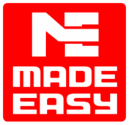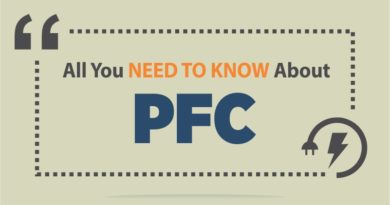Engineering Mathematics for GATE 2025 – The Most Underrated Subject
The Graduate Aptitude Test in Engineering (GATE) exam is a national-level examination conducted every year. It is a computer-based, standardized test conducted at the national level in India. The primary aim is to test the knowledge of engineering and science graduates.
Indian Institute of Technology, Roorkee (IIT-R), one of the top IIT’s, is hosting this year’s GATE 2025 exam. It is located in Roorkee, Uttarakhand. Every year, numerous prestigious IITs hold GATE exams with the primary goal of providing hopefuls with the best exam experience possible.
One of the important topics with significant weight in the GATE exam is engineering mathematics. It is important to realize that a significant portion of the marks in this competitive exam are assigned to engineering mathematics. It is therefore necessary to study engineering mathematics for GATE in accordance with the GATE syllabus and your engineering discipline.
The following engineering streams comprise Engineering Mathematics as an important subject:
- Civil Engineering
- Mechanical Engineering
- Computer Science and Information Technology Engineering
- Electrical Engineering
- Electronics and Telecommunications Engineering
Engineering Mathematics syllabus for GATE:
Now, let us find out the important sections associated with the Engineering mathematics syllabus for GATE.
- Calculus
- Linear Algebra
- Real Analysis
- Complex Analysis
- Ordinary Differential equations
- Algebra
- Functional Analysis
- Numerical Analysis
- Partial Differential Equations
- Topology
- Linear Programming
Each of these 11 sections of Engineering Mathematics for GATE comprises topics that have varied marks weightage from the competitive examination point of view.
1. Calculus:
Functions of two or more variables, continuity, directional derivatives, partial derivatives, total derivative, maxima and minima, saddle point, and method of Lagrange’s multipliers. Double and Triple integrals and their applications to area, volume, and surface area; Vector Calculus: gradient, divergence and curl, Line integrals and Surface integrals, Green’s theorem, Stokes’ theorem, and Gauss divergence theorem.
2. Linear Algebra:
Finite dimensional vector spaces over real or complex fields; Linear transformations and their matrix representations, rank and nullity; systems of linear equations, characteristic polynomial, eigenvalues and eigenvectors, diagonalization, minimal polynomial. Cayley-Hamilton Theorem, Finite dimensional inner product spaces, GramSchmidt orthonormalization process, symmetric, skew-symmetric, Hermitian, skew-Hermitian, normal, orthogonal and unitary matrices; diagonalization by a unitary matrix, Jordan canonical form; bilinear and quadratic forms.
3. Real Analysis:
Metric spaces, connectedness, compactness, completeness; Sequences and series of functions, uniform convergence, Ascoli-Arzela theorem; Weierstrass approximation theorem; contraction mapping principle, Power series. Differentiation of functions of several variables, Inverse and Implicit function theorems; Lebesgue measure on the real line, measurable functions; Lebesgue integral, Fatou’s lemma, monotone convergence theorem, dominated convergence theorem.
4. Complex Analysis:
Functions of a complex variable: continuity, differentiability, analytic functions, harmonic functions; Complex integration: Cauchy’s integral theorem and formula; Liouville’s theorem, maximum modulus principle, Morera’s theorem; zeros and singularities; Power series, radius of convergence, Taylor’s series and Laurent’s series; Residue theorem and applications for evaluating real integrals; Rouche’s theorem, Argument principle, Schwarz lemma; Conformal mappings, Mobius transformations.
5. Ordinary Differential Equations:
First order ordinary differential equations, existence and uniqueness theorems for initial value problems, linear ordinary differential equations of higher order with constant coefficients; Second order linear ordinary differential equations with variable coefficients; Cauchy-Euler equation, method of Laplace transforms for solving ordinary differential equations, series solutions (power series, Frobenius method); Legendre and Bessel functions and their orthogonal properties; Systems of linear first order ordinary differential equations, Sturm’s oscillation and separation theorems, Sturm-Liouville eigenvalue problems, Planar autonomous systems of ordinary differential equations: Stability of stationary points for linear systems with constant coefficients, Linearized stability, Lyapunov functions.
6. Algebra:
Groups, subgroups, normal subgroups, quotient groups, homomorphisms, automorphisms; cyclic groups, permutation groups, Group action, Sylow’s theorems and their applications; Rings, ideals, prime and maximal ideals, quotient rings, unique factorization domains, Principle ideal domains, Euclidean domains, polynomial rings, Eisenstein’s irreducibility criterion; Fields, finite fields, field extensions, algebraic extensions, algebraically closed fields.
7. Functional analysis:
Normed linear spaces, Banach spaces, Hahn-Banach theorem, open mapping and closed graph theorems, the principle of uniform boundedness; Inner-product spaces, Hilbert spaces, orthonormal bases, projection theorem, Riesz representation theorem, spectral theorem for compact self-adjoint operators.
8. Numerical analysis:
Systems of linear equations: Direct methods (Gaussian elimination, LU decomposition, Cholesky factorization), Iterative methods (Gauss-Seidel and Jacobi) and their convergence for diagonally dominant coefficient matrices; Numerical solutions of nonlinear equations: bisection method, secant method, Newton-Raphson method, fixed point iteration; Interpolation: Lagrange and Newton forms of interpolating polynomial, Error in polynomial interpolation of a function; Numerical differentiation and error, Numerical integration: Trapezoidal and Simpson rules, Newton-Cotes integration formulas, composite rules, mathematical errors involved in numerical integration formulae; Numerical solution of initial value problems for ordinary differential equations: Methods of Euler, Runge-Kutta method of order 2.
9. Partial Differential Equations:
Method of characteristics for first-order linear and quasilinear partial differential equations; Second order partial differential equations in two independent variables: classification and canonical forms, method of separation of variables for Laplace equation in Cartesian and polar coordinates, heat and wave equations in one space variable; Wave equation: Cauchy problem and D’Alembert formula, domains of dependence and influence, non-homogeneous wave equation; Heat equation: Cauchy problem; Laplace and Fourier transform methods
1o. Topology:
Basic concepts of topology, bases, subbases, subspace topology, order topology, product topology, quotient topology, metric topology, connectedness, compactness, countability and separation axioms, Urysohn’s Lemma.
11. Linear Programming:
Linear programming models, convex sets, extreme points; Basic feasible solution, graphical method, simplex method, two-phase methods, revised simplex method; Infeasible and unbounded linear programming models, alternate optima; Duality theory, weak duality, and strong duality; Balanced and unbalanced transportation problems, Initial basic feasible solution of balanced transportation problems (least cost method, northwest corner rule, Vogel’s approximation method); Optimal solution, modified distribution method; Solving assignment problems, Hungarian method.
Now, let us dive into understanding how to prepare for the most underrated subject in GATE 2025, i.e., engineering mathematics.
i. Understand the subject well:
Before delving into in-depth GATE preparation, one must first comprehend the parts and topics included in this competitive examination. The entire engineering mathematics syllabus for GATE can be found in the preceding section.
ii. Create a plan:
Yes, you heard that right! A proper plan will help you understand how much time you must dedicate to each section. Dedicate a significant amount of time to this subject to learn and implement the concepts and formulas properly. If required, you can take guidance from your subject expert or mentor right from the start of the exam preparation.
iii. Prioritize regular practice:
You must be aware that one of the subjects with the highest scores on the GATE Exam 2025 is engineering mathematics. To start from scratch when developing your concepts, you might practice the questions included in the Engineering Mathematics books for the GATE Exam. Practice at least 15 to 20 questions a day to build the necessary conceptual foundation for the test. After you have finished studying for the GATE Engineering Mathematics course, you need to make sure you take as many mock exams as possible. It will help you find out the areas for improvement until the examination time.
iv. Aim to improve focus and speed:
You must realize that in order to achieve the necessary scores in engineering mathematics, focus and quickness are essential. If you are consistent, committed, and pick the appropriate tools for the job as you prepare, you can accomplish this.
v. Avoid memorizing:
Memorizing subjects like engineering mathematics does not help in the long term for the competitive exam. Therefore, one must avoid memorizing this subject’s concepts for the GATE examination. It might take time to strengthen this subject, but you will see that you can answer the questions related to the subject in the best possible manner.
vi. Treat time like treasure:
When preparing for competitive examinations such as GATE, you must understand that engineering mathematics requires the exam taker to diligently attempt the exam. Therefore, you must ensure that you do not waste any time during your exam preparation journey. Use digital apps to manage your time and avoid time wastage in unnecessary activities that might take you away from your goal.
Book for Engineering Mathematics
There have been a number of books in the market with various publications, as this subject does require the need for bookish knowledge. There have been many books on engineering mathematics with detailed explanations and many previous-year solved question papers. The MADE EASY Team has put significant efforts into providing students with insights into the subject and topic-wise previous year’s questions. This will undoubtedly help you cover the entire syllabus of GATE.
How to Score 13/13 in Engineering Mathematics?
Here are some of the questions associated with Engineering Mathematics in the GATE 2025 exam.
FAQs:
Q.1 – What is Engineering Mathematics?
Ans: Engineering Mathematics is a part of applied mathematics. It comprises mathematical methods and techniques that are applicable in the respective engineering fields.
Q.2 – Is engineering mathematics important for the GATE exam?
Ans: Yes. Engineering mathematics is very significant for the GATE 2025 exam. This subject comprises 12 to 15 marks out of the total 100 marks, which makes it quite important for this competitive exam
Q.3 – Which is the best book for Engineering Mathematics?
Ans: Engineering Mathematics for the GATE exam is a high-scoring subject. Therefore, the book covering the syllabus of GATE 2025 thoroughly is the best book. Topics like Calculus, Linear Algebra, Real Analysis, Complex Analysis, Ordinary Differential equations, Algebra, Functional Analysis, Numerical Analysis, Partial Differential Equations, Topology, and Linear Programming with previous year solved question paper is considered the best book for engineering mathematics.
Q.4 –Are international students allowed to sit for GATE 2025?
Ans: Yes. International students must fulfill the required eligibility criteria to sit for the GATE examination for the 2025 session. The respective candidate must have completed their bachelor’s degree in engineering or technology or be presently in the final year. Apart from this, you can also apply for the examination if you have completed or are presently pursuing a postgraduate degree. It is important to provide the required documents to sit for the competitive examination. This includes a provisional certificate or degree completion certificate as per the current state of education.
Q.5 – Who is conducting GATE 2025?
Ans: IT Roorkee is conducting GATE 2025.
Q.6 – How many times is the GATE examination conducted every year?
Ans: The GATE examination is conducted once every year.
Q.7 – Is Engineering Maths the same for all branches of the GATE?
Ans: Yes, Engineering Mathematics is almost the same for all the branches of the GATE including civil engineering, mechanical engineering, electrical engineering, electronics and communication engineering, computer science and information technology, instrumentation engineering, production and industrial engineering, environmental science and engineering.
Q.8 – What is the weightage of Engineering Mathematics in GATE?
Ans: The topic and questions of engineering mathematics are compulsory and have high scoring, as they carry 15% of the total weightage.
Hope you have found this blog post useful.
Feel free to read other blogs associated with the GATE exam.
All the best for GATE 2025!
Dear Aspirants,
Your preparation for GATE, ESE, PSUs, and AE/JE is now smarter than ever — thanks to the MADE EASY YouTube channel.
This is not just a channel, but a complete strategy for success, where you get toppers strategies, PYQ–GTQ discussions, current affairs updates, and important job-related information, all delivered by the country’s best teachers and industry experts.
If you also want to stay one step ahead in the race to success, subscribe to MADE EASY on YouTube and stay connected with us on social media.
MADE EASY — where preparation happens with confidence.

MADE EASY is a well-organized institute, complete in all aspects, and provides quality guidance for both written and personality tests. MADE EASY has produced top-ranked students in ESE, GATE, and various public sector exams. The publishing team regularly writes exam-related blogs based on conversations with the faculty, helping students prepare effectively for their exams.






I am a diploma student and got lateral entry into B.Tech so what should be my strategy from where should I start. Please help and thanks for the article.
Dear Rahul,
Thank you for writing to us. Whether you are a lateral entry or not, the preparation strategy will not change for either of the candidates.If you work hard and show complete dedication then anything is achievable. Get started with the syllabus and follow the strategy given in the article. You will surely excel in this subject.
Keep Reading
Team MADE EASY
Dear sir
I need engineering mathematics previous years solved question for gate mechanical engineering.
In addition to that I need solved question paper for all the subjects of mechanical engineering for gate 2021.
Where do I can get all those?
Dear Aditya,
We would request you to visit our website https://madeeasypublications.org/
Regards,
Team MADE EASY